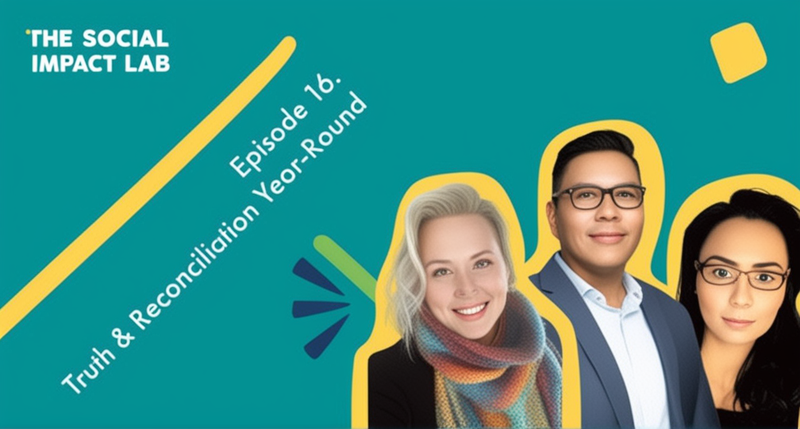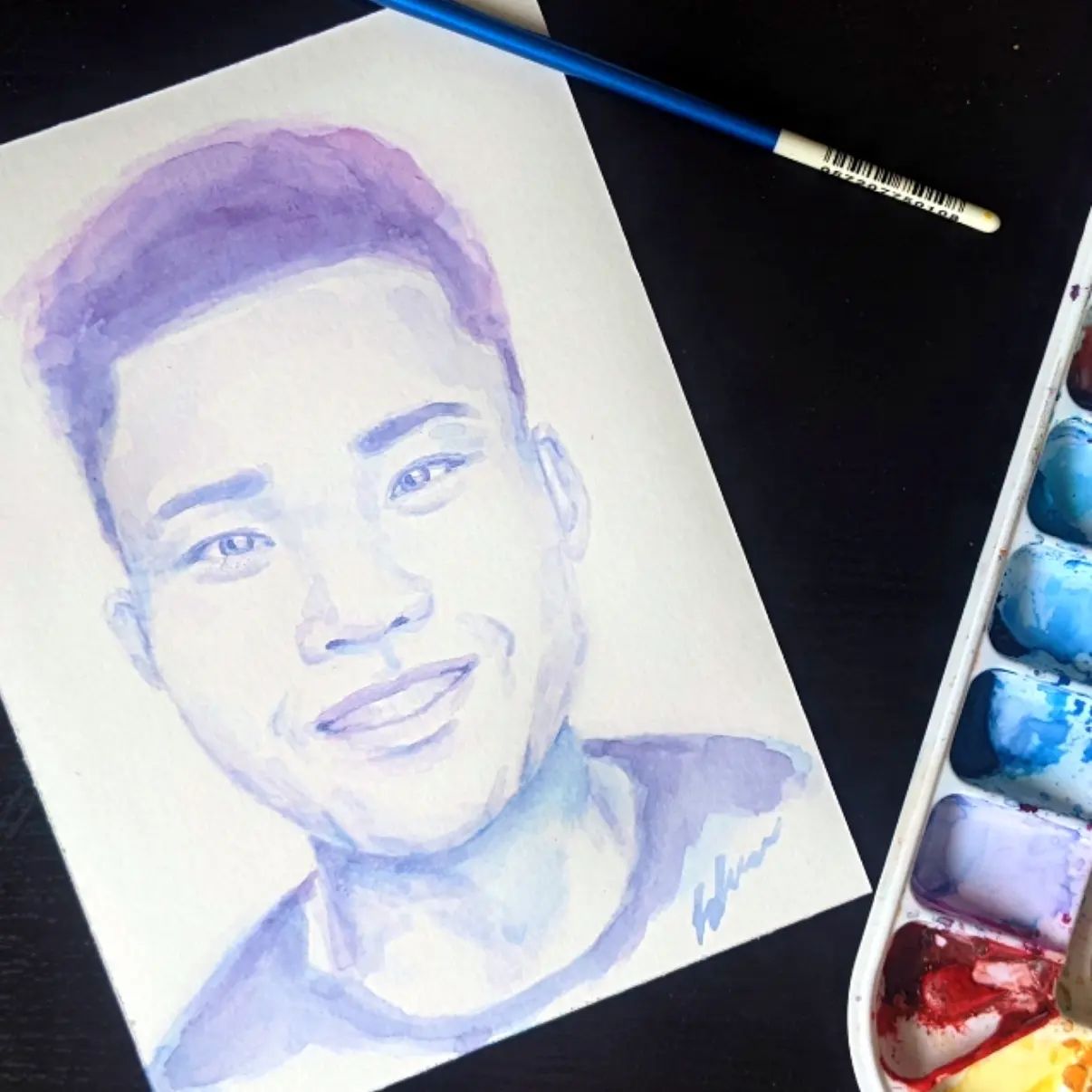Year-Round Reconciliation
- 7 mins
In my role as a podcast transcriber for The Social Impact Lab, I would like to emphasize the key insights I gained from one of their episodes titled "Truth and Reconciliation Year-Round." For the complete episode, you can click here.
Introductions
"Oki nick, sokwa Nisku wannakok numskull ohsoko."
Angela Houle, an Assistant Principal in Calgary and a visitor to Treaty 7 territory, introduces herself as Nisku (Thunder Pipe Path) in Blackfoot, with roots in Treaty 6 territory and Metis communities in southern Saskatchewan.
"Oki nick, sokwa anistoni daniku natwisa oka assum."
Tim Fox, originally from the Kainai Nation, a part of the Siksika Confederacy, introduces himself as a member of the Aapohsoyioyiikoan clan, or the Many Children's Clan in English. He is a proud father of a 12-year-old daughter and works for the Calgary Foundation in the role of Vice President for Business Relations and Equity Strategy since 2017.
"Oki, nisura umatuwaki nimoto do Piikani."
Sarena Provost, originally from Piikani First Nation and now residing in Mohkinstsis, introduces herself as the Indigenous Manager at YMCA Calgary .

What is the significance of the National Day for Truth and Reconciliation for Canadians?
- Canadians should acknowledge their responsibility in raising awareness about the experiences and challenges of Indigenous communities, particularly survivors of residential schools, and actively support efforts for healing and addressing ongoing inequalities faced by Indigenous people. (3:42, TIM)
- While the term "reconciliation" may not fully capture the history, it offers the opportunity to build correct, equitable relationships moving forward. (6:41, ANGELA)
- This holiday should not just be seen as a day off, but rather as an opportunity for individuals to actively engage with the Indigenous community, attend events, listen to survivor stories, and educate themselves about the history of residential schools and their ongoing impact, as it's not solely a historical issue but also extends to day schools and the child welfare system. It's essential for others to take responsibility for their own learning and engagement in order to alleviate the emotional and spiritual burden placed on Indigenous individuals who have been educating and advocating for change. (8:40, SARENA)

What can non-Indigenous people do to honour the day?
Suggestions include listening to Indigenous radio stations (88.1FM), and following a three-step process outlined by Doctors Yvonne Poitras Pratt and Patricia Danyluk. Making mistakes is part of the learning process and encourages apologizing and seeking to understand how to do better in the future as a way to make progress in reconciliation efforts. (11:39 ANGELA)
Canadians should consider their spheres of influence within their families, friend groups, and workplaces to educate and motivate others to change their attitudes and beliefs, as this work goes beyond finding quick solutions and requires a collective effort to address stereotypes and discrimination that still affect Indigenous people, especially children who are influenced by learned ideologies from their families. (15:25, TIM)
It takes an emotional toll, especially when constantly accepting offerings like tobacco. I urge individuals to take responsibility for their own learning and engagement with the Indigenous community in Calgary, emphasizing the importance of being mindful in their requests and not relying solely on Indigenous leaders for education and support. In Calgary, there are over 70 Indigenous-led programs and agencies, numerous annual events, and nearby Indigenous communities like Tsuut’ina, Siksika, and Stoney where people can engage. Additionally, many Indigenous businesses are tech-savvy and offer online shopping year-round, providing ample opportunities for support and engagement. (21:43, SARENA)
Non-Indigenous individuals should be encouraged to engage in respectful questioning... "My question, it's always a question. Where did you hear that? Why do you think that? How many Indigenous people do you know? Where did you see that happen? It's always a conversation that starts with a question and people find very quickly they don't have an answer or they don't have an adequate answer…" (28:52, ANGELA)

Why is it important to honour this day throughout the year?
"Often times they'll say, well, I want to learn about the residential school system, or I want to learn about the 60s scoop. And then I have to stop them really quickly. And I say, do you realize that that's not Indigenous history. That's a part of the deep, dark, hidden Canadian history. If you want to learn about Indigenous history, it's a lot more beautiful than that." (31:17, TIM)
Learning about and engaging with Indigenous culture can foster pride and connection for Indigenous youth and improve relationships between Indigenous and non-Indigenous communities. The new generation of leaders are unafraid to challenge the status quo and educate their parents and peers. They're focused on driving real change, not just in reconciliation but in achieving equality as well.
"Our friend Beena Patel would encourage us to do is design for progress and not comfort." (31:17, TIM)
It's important to honor National Day for Truth and Reconciliation year-round, as the legacies of Canadian history and colonization persist daily. (36:48, ANGELA)
Indigenous culture offers opportunities for learning and appreciation beyond the negative aspects of history. There are historical sites and cultural experiences, such as visiting places like Buffalo Jump and Blackfoot Crossing, to understand Indigenous heritage and challenges. Elder in the Making (on Youtube) offers lessons and hope. (38:19, SARENA)

Extra Knowledge
"I've had so many straight white males say to me, well, I didn't, I was just born this way. Like why am I a bad guy? And I'm like you're not a bad person, but you are very fortunate for the way that you were born. The way that you came into this world and all you can do is own that fortune and move forward in the world accordingly." (43:39, ANGELA)
- Understand that being born with privilege is not a matter of guilt or shame, but it comes with responsibilities.
- Reflect on the Wheel of Privilege and Power by Sylvia Duckworth, which identifies various forms of privilege.
- Oppression can be both external and internal, affecting how individuals perceive themselves and their interactions.
- Simple acts of kindness and warmth, such as smiling and offering a friendly greeting, can help build positive relationships and challenge internalized oppression.
"There's a website called The Conversation and the article on that website is called Settlers With Opinions. So I always use that article not to let people know this work isn't about guilt or shame or anger. That's not our point. That's not what we desire to amplify in people or participants who are engaged in the things that we do." (46:30, TIM)
- Acknowledge and honor Indigenous individuals who engage in challenging and necessary work.
- Emphasize the responsibility to provide factual information rather than changing others' minds.
- Redirect energy towards engaging with progressive minds and those eager for positive change, focusing on the well-being of future generations.
"There's this elder named Patrick Daigneault. He's a Metis/Cree elder and I have so much respect for him. He one time told me... don't welcome me to your home if I can't be me in your home." (50:52, SARENA)
- Acknowledge the emotional toll and challenges of engaging in reconciliation work, especially during discussions and events like blanket exercises.
- Emphasize the importance of creating safe, non-judgmental spaces where individuals can be themselves and share their experiences.
- Recognize the value of allies in reconciliation work and their role in holding space and supporting Indigenous communities.
- Express gratitude for the guidance and wisdom of Indigenous elders in the journey toward reconciliation.
"Is Everyone Really Equal" by Ozlem Sensoy is a valuable resource for reconciliation work. (56:42, ANGELA)
- Decolonization involves recognizing whose stories, cultures, and voices have been marginalized or omitted and why.
- Create and maintain spaces for reconciliation work year-round, rather than treating it as a checkbox exercise.
- If it takes a long time to walk into the forest (colonization), it will take an equally long time to walk out (decolonization).
- Highlight the importance of starting reconciliation conversations early, as even children can engage in meaningful discussions about it.
Header image courtesy of The Social Impact Lab

